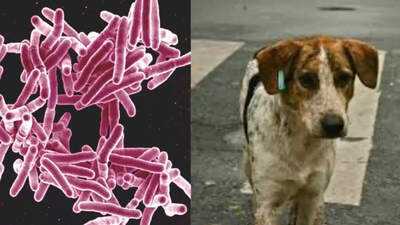
 A Serious Medical Misdiagnosis
A Serious Medical Misdiagnosis
An 18-year-old male was mistakenly treated for tuberculosis (TB) for six months, despite actually suffering from a parasitic lung infection, likely contracted from a stray dog. The young man exhibited symptoms such as a persistent cough and fatigue, which are typically associated with TB, leading healthcare professionals to prescribe TB medication.
However, when his health did not improve, further testing at CK Birla Hospital in Gurgaon identified the true culprit as hydatid disease, an infection caused by the tapeworm Echinococcus granulosus that can transfer from animals to humans.
Dr. Vikas Mittal, the director of pulmonology at CK Birla Hospital, noted that such cases are not as rare as they may seem. He explained that infections like hydatid disease can mimic TB symptoms, and if doctors overlook these possibilities, it can result in misdiagnosis and unnecessary treatments.
Understanding Hydatid Disease
Hydatid disease is transmitted through microscopic eggs found in the feces of infected dogs. These eggs can be ingested via animal fur, soil, or dust, especially if individuals do not wash their hands after interacting with stray animals.
The infection can also spread from household pets that are not regularly dewormed. Once inside the body, these parasites can create cysts in critical organs like the lungs, liver, or brain, leading to symptoms such as breathing difficulties, chest pain, and fatigue, which can easily be mistaken for TB.
Challenges in Diagnosis
Experts highlight that many general practitioners diagnose TB based solely on X-ray results without consulting specialists or conducting further tests. This practice increases the likelihood of misdiagnosis, particularly when X-ray images resemble those of other conditions.
Dr. Mittal explained that the patient had a complex and ruptured hydatid cyst in his lungs, resulting in fluid buildup in the chest. Initially, this was misinterpreted as a sign of TB, but the radiologist failed to recognize the hydatid cyst due to a lack of awareness.
Public Health Implications
Cities like Delhi, which have a significant population of stray dogs, face a heightened risk of such infections. Public health experts warn that even simple actions like feeding or petting stray animals can pose health risks.
Dr. Mittal emphasized that infections can spread without bites, and maintaining good hygiene practices, such as regular hand washing, is crucial in preventing these infections.
The World Health Organization has categorized hydatid disease as a 'neglected tropical disease,' often underdiagnosed in areas with limited resources and awareness.
Recommendations for Pet Owners
Experts advise individuals who own pets or frequently interact with stray animals to report any respiratory issues to their healthcare provider. An additional examination can often prevent prolonged incorrect treatments.
Public health recommendations include avoiding close contact with stray animals, practicing good hygiene, and seeking a second opinion if standard treatments do not yield results.
-
'Rename Teen Hath Naka As Dharmaveer Anand Dighe Saheb': Transport Minister Pratap Sarnaik Pens Thane Metro Line Names Suggestions To Deputy CM Eknath Shinde

-
Video: Indore Long Drive Turns Deadly: 2 Students Die, 3 Critical After Speeding Car Overturns On Indore Bypass

-
Turkey detains cartoonist over Muhammad caricature

-
Pakistan set to assume presidency of UN Security Council

-
Wales incident LIVE: Police close several streets in UK seaside town
